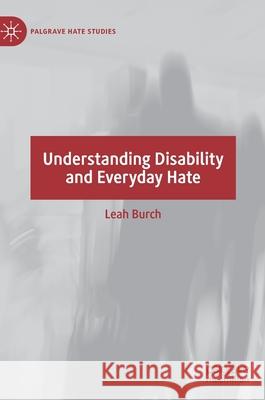Understanding Disability and Everyday Hate » książka
topmenu
Understanding Disability and Everyday Hate
ISBN-13: 9783030868178 / Angielski / Twarda / 2021 / 260 str.
Understanding Disability and Everyday Hate
ISBN-13: 9783030868178 / Angielski / Twarda / 2021 / 260 str.
cena 481,91
(netto: 458,96 VAT: 5%)
Najniższa cena z 30 dni: 462,63
(netto: 458,96 VAT: 5%)
Najniższa cena z 30 dni: 462,63
Termin realizacji zamówienia:
ok. 22 dni roboczych.
ok. 22 dni roboczych.
Darmowa dostawa!
Kategorie:
Kategorie BISAC:
Wydawca:
Springer Nature Switzerland AG
Seria wydawnicza:
Język:
Angielski
ISBN-13:
9783030868178
Rok wydania:
2021
Ilość stron:
260
Waga:
0.49 kg
Wymiary:
21.01 x 14.81 x 1.91
Oprawa:
Twarda
Wolumenów:
01
Dodatkowe informacje:
Wydanie ilustrowane











